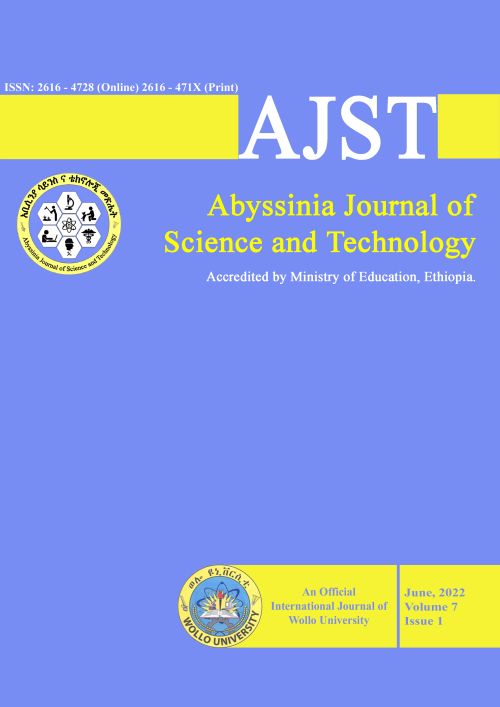Main Article Content
Isolation and Screening of Keratinolytic Protease-Producing Bacteria from Soil in Abattoir Waste Disposal Area, Dessie, Ethiopia
Abstract
Management of keratin wastes with the help of microorganisms is a biotechnological alternative for recycling and valorization of these biomaterials. Keratinase belongs to a class of proteases that can serve as an important tool to convert keratin-rich wastes into diverse value-added products that are used for many applications. Therefore, the aim of this study was to isolate and screen keratinolytic bacteria from soil in abattoir waste disposal area. Screening of protease-producing isolates was performed on the medium containing 1% skim milk powder and 1.5% agar at 37ºC. A total of 34 isolates were selected after growth on nutrient agar media. Among 34 isolates, 17 were showing proteolytic activity on the skim milk agar medium and 3 isolates (MD1, MD4 and MD10) showed a clear zone greater than 25 mm. These isolates were again subjected to secondary screening for sheep hair degradation, and all showed complete degradation of sheep hair between 204 h and 360 h. Isolate MD4 was selected as the potent bacterium because it can degrade sheep hair within 204 h and produced maximum level of keratinase (899.30U/ml). Based on its morphological and biochemical characteristics, MD4 was tentatively identified as Bacillus sp. The results of this study revealed that isolate MD4 might have potential biotechnological applications that involve hydrolysis of keratin. It can be also used to manage keratin wastes and produce value-added products from these wastes. If further research such as enzyme characterization and genetic improvement of the organism is conducted, the isolate would be a good source of keratinolytic protease.







